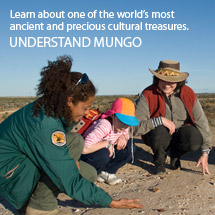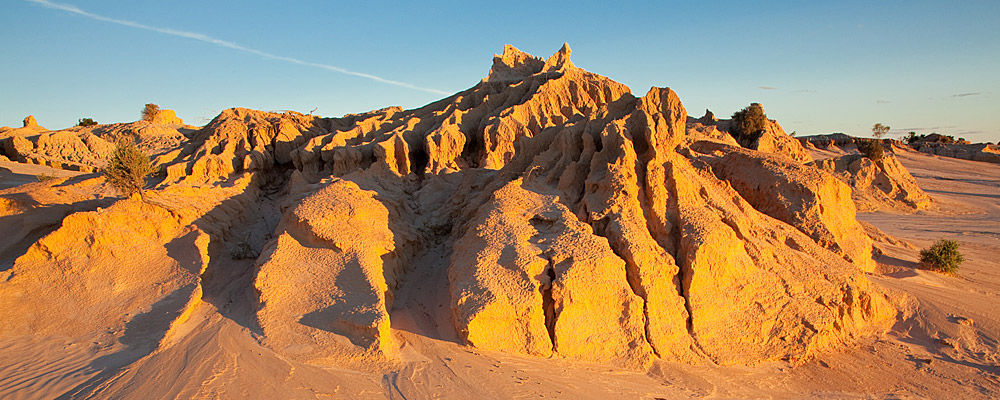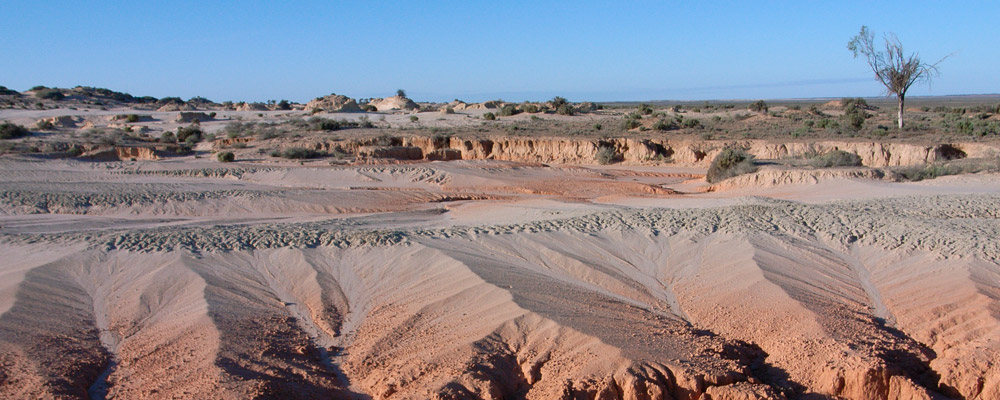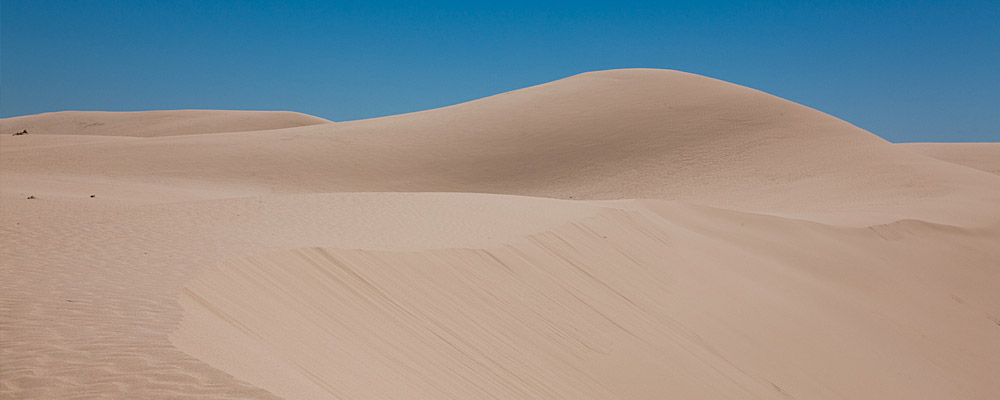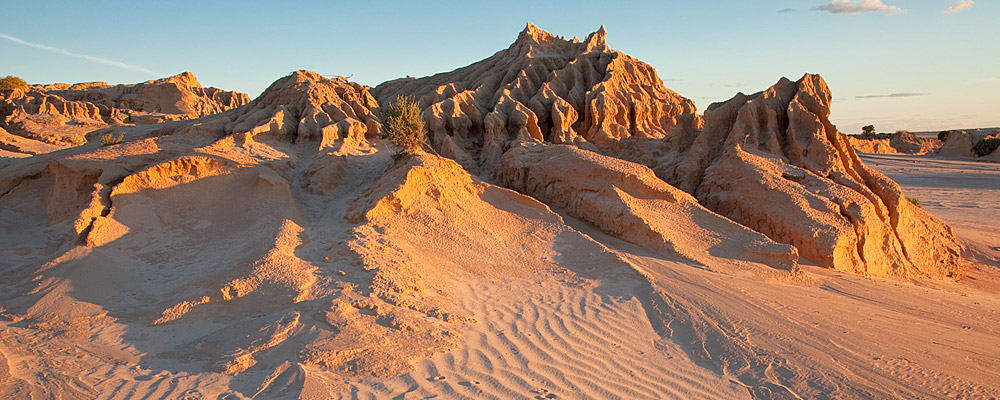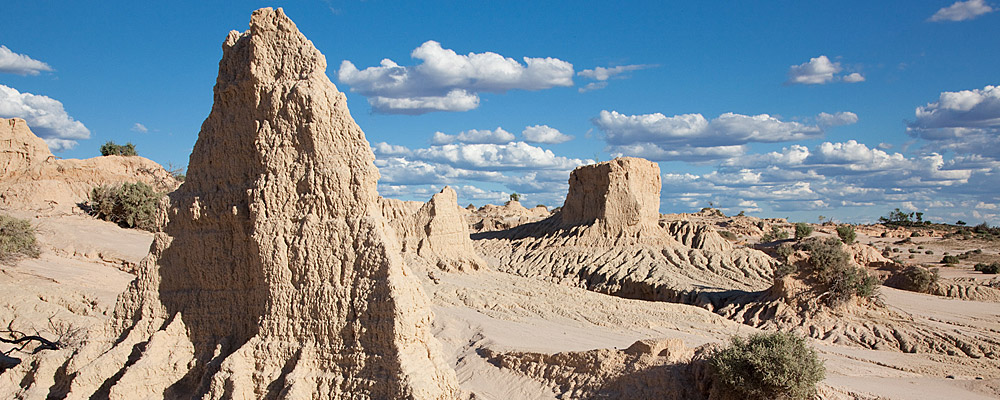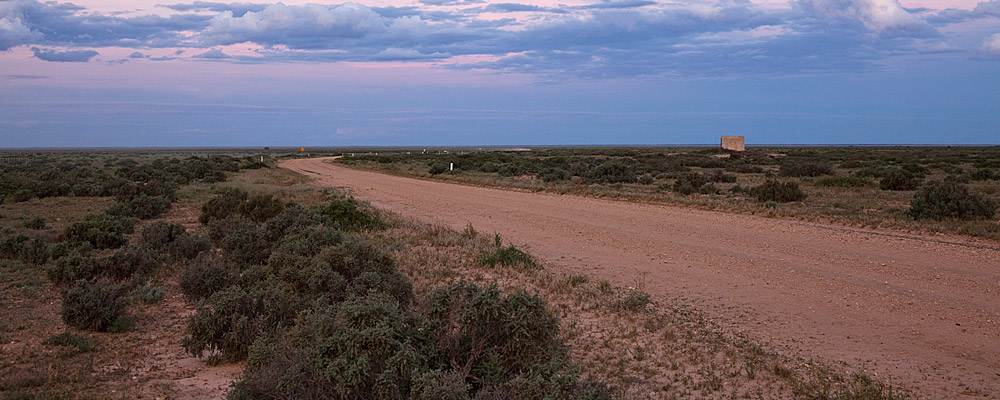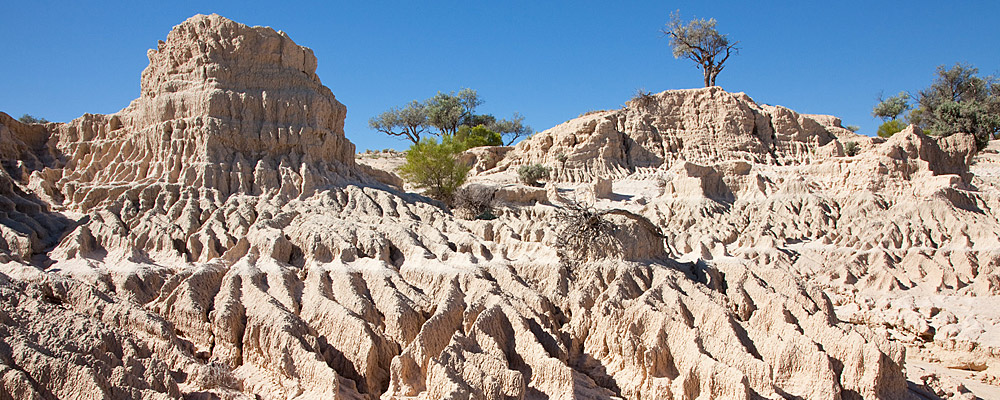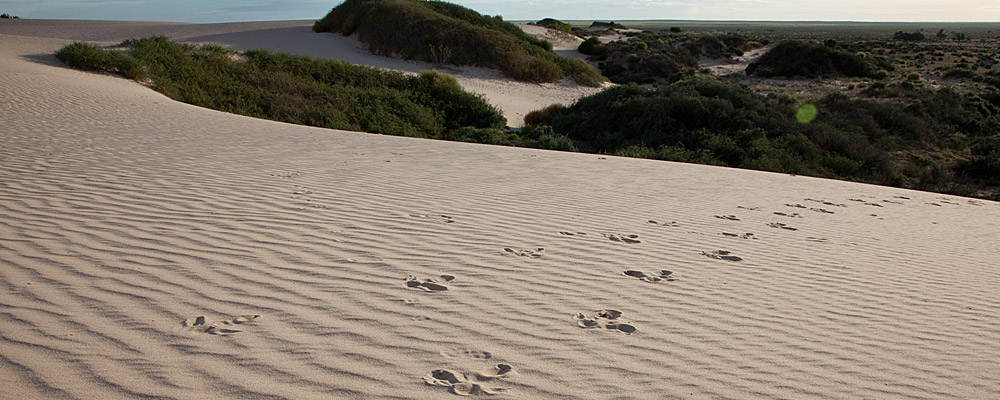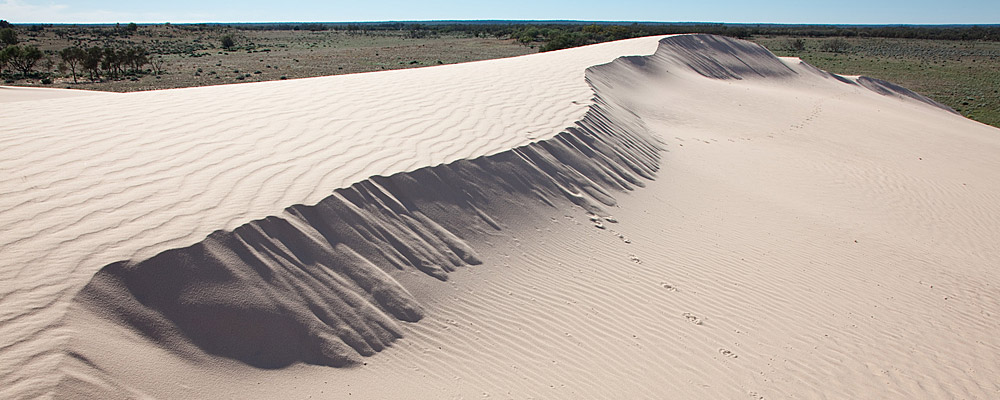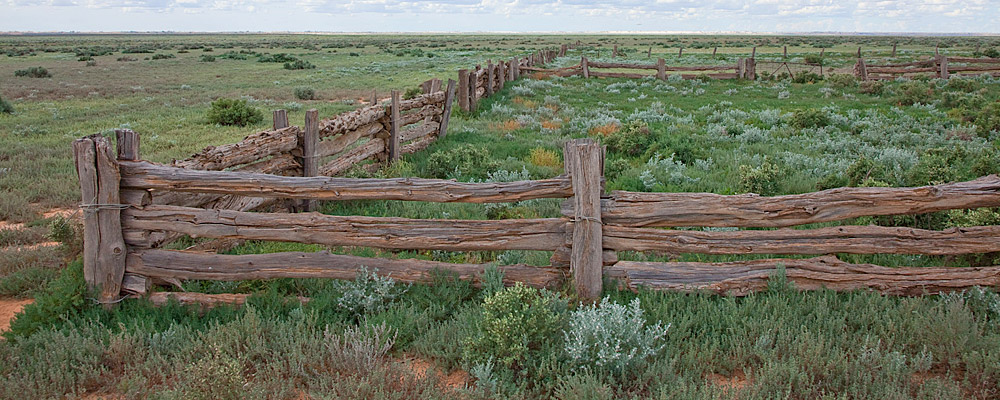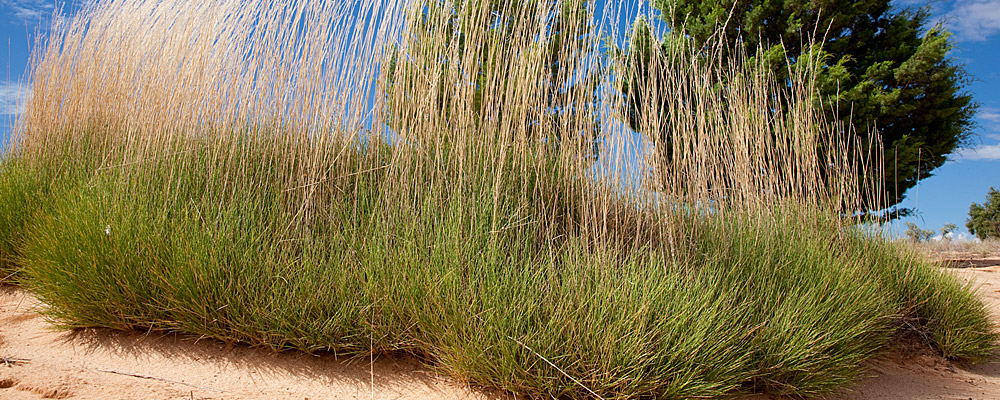Share Mungo Culture
Aboriginal Country
When Aboriginal people use the English word 'Country' it is meant in a special way. For Aboriginal people culture, nature and land are all linked. Aboriginal communities have a cultural connection to the land, which is based on each community's distinct culture, traditions and laws.
Country takes in everything within the landscape - landforms, waters, air, trees, rocks, plants, animals, foods, medicines, minerals, stories and special places. Community connections include cultural practices, knowledge, songs, stories and art, as well as all people: past, present and future. People have custodial responsibilities to care for their Country, to ensure that it continues in proper order and provides physical sustenance and spiritual nourishment. These custodial relationships may determine who can speak for particular Country.
These concepts are central to Aboriginal spirituality and continue to contribute to Aboriginal identity. Aboriginal communities associate natural resources with the use and benefit of traditional foods and medicines, caring for the land, passing on cultural knowledge and strengthening social bonds.
Access to Mungo National Park and other protected public lands provides particular opportunities for Aboriginal people to sustain spiritual and cultural activities.
I love this land I walk on.
Warren Clark, Executive Officer Mungo Joint Management
Coming to Mungo I get a different sense of feeling, that I'm home. You seem to know when you're back in your own Country. It's not taught to you, its built in you. It's in your soul, that that's your Country.
Roy Kennedy, Ngiyampaa Elder
My mother was taken away from her people, and from her Country. And likewise me, and my brothers and sisters, we were taken away, the stolen generation. But we came back to our Country. This is our Country. It's a part of us, so we are who we are. That's our identity. We're nobody if we don't have Country.
Patrick Lawson, Paakantji


